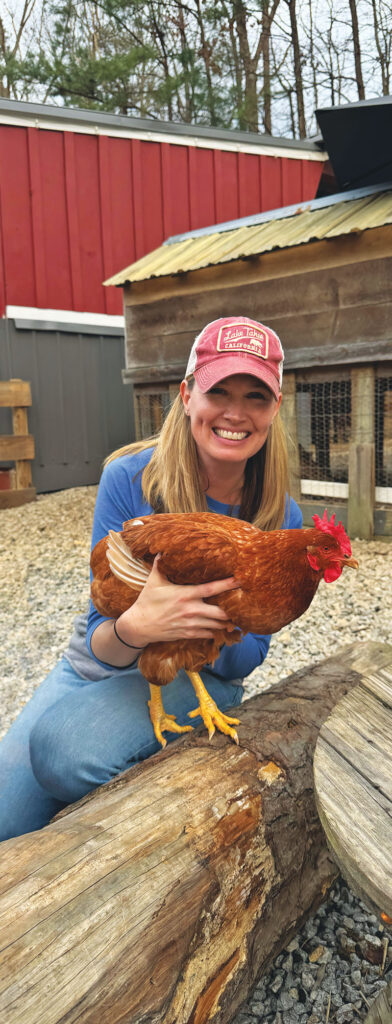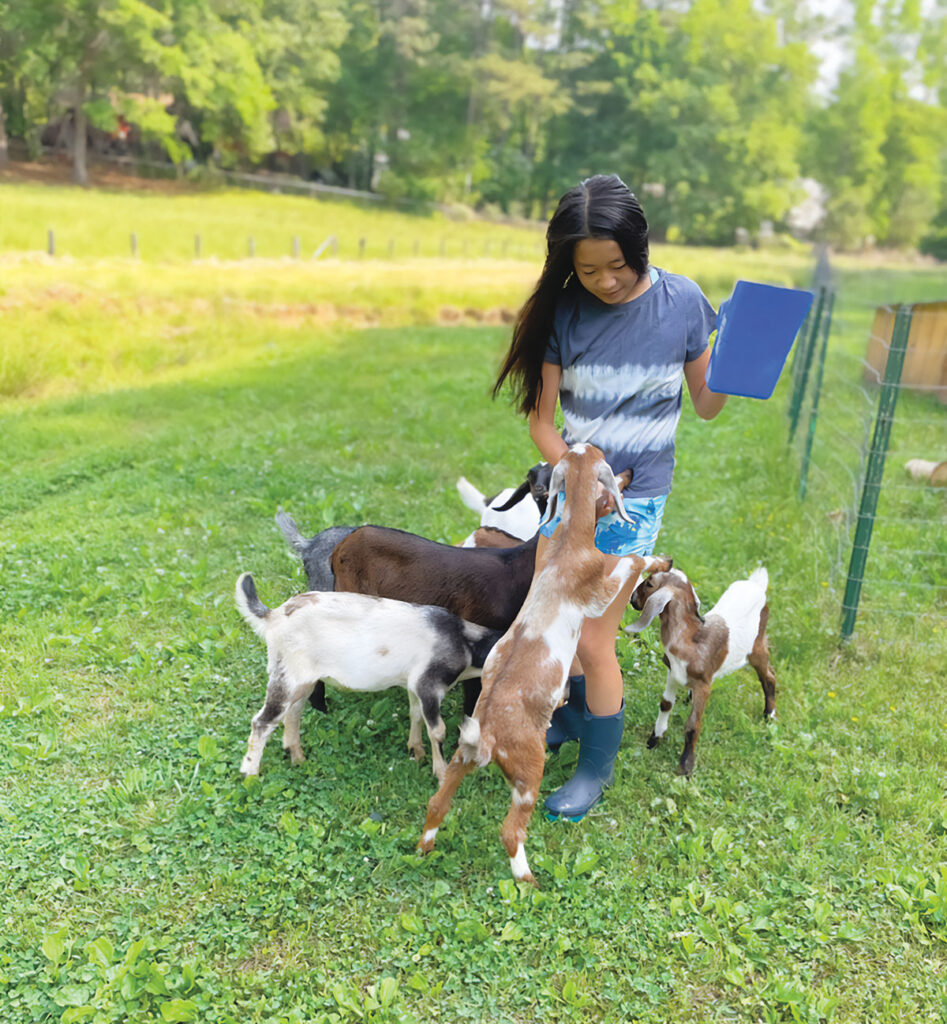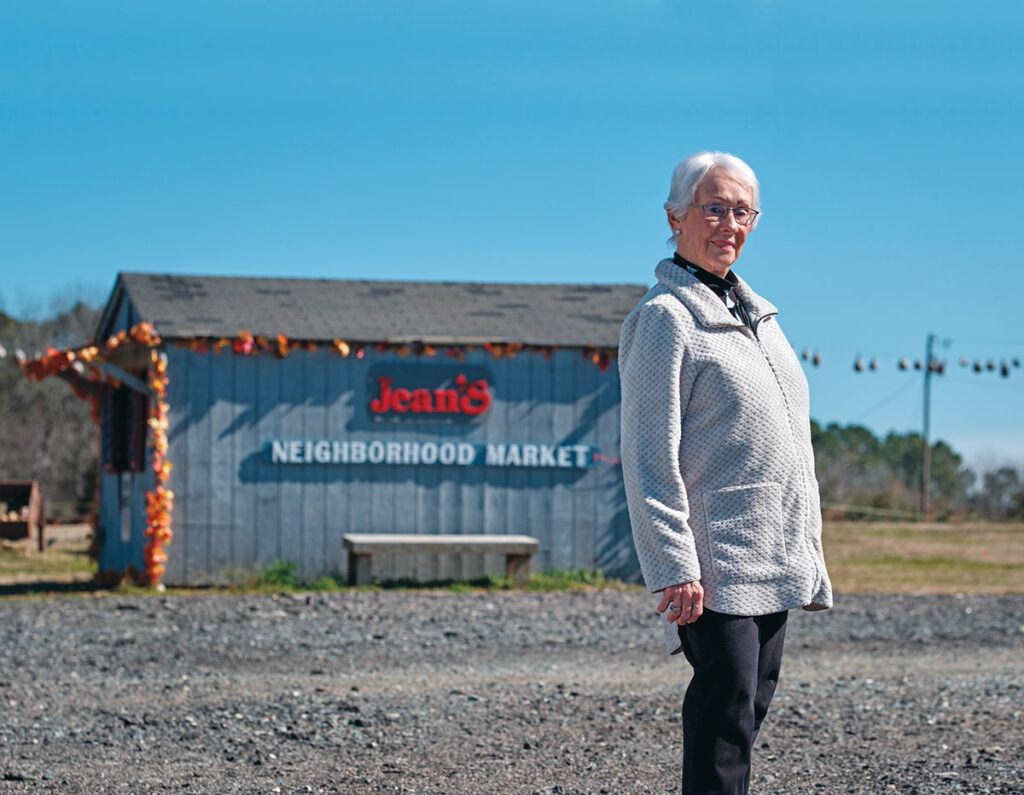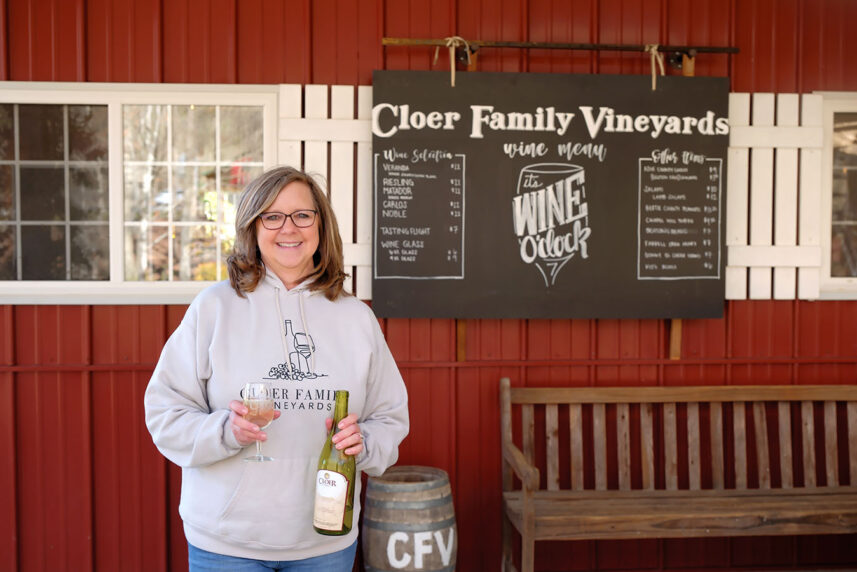Article:
Harvesting Change
The impact of female farmers on local communities
BY KRISTEN SCHRUM
A new kind of farm is flourishing in Wake County under the care of its women farmers. These pastoral pioneers sow more than just seeds in the soil; they cultivate a community conscious of the richness that comes with shopping locally and embracing the land’s yield. Their dedication lies not only in agriculture, but in education and connection as well.
From the delicious goods harvested and sold by Stoney Acres NC and Jean’s Neighborhood Market to the sun-dappled grapevines of Cloer Family Vineyards, these women-run farms are rewriting the narrative of North Carolina agriculture. They don’t just harvest crops—they harvest relationships, nurturing a dialogue with their neighbors about the value of local produce and the strength it weaves within the social fabric.

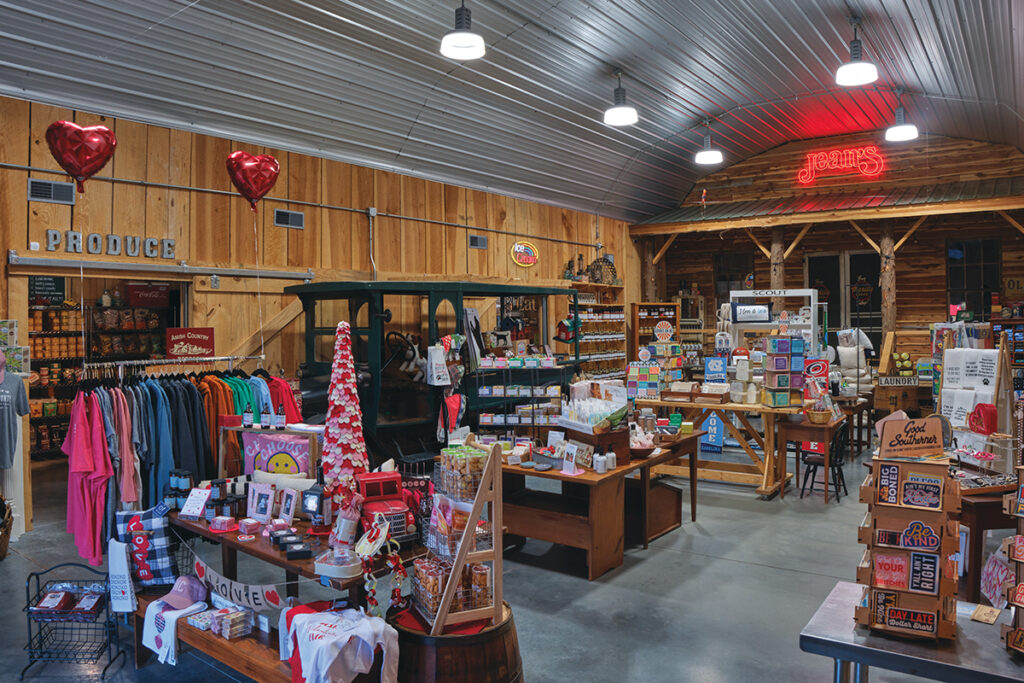
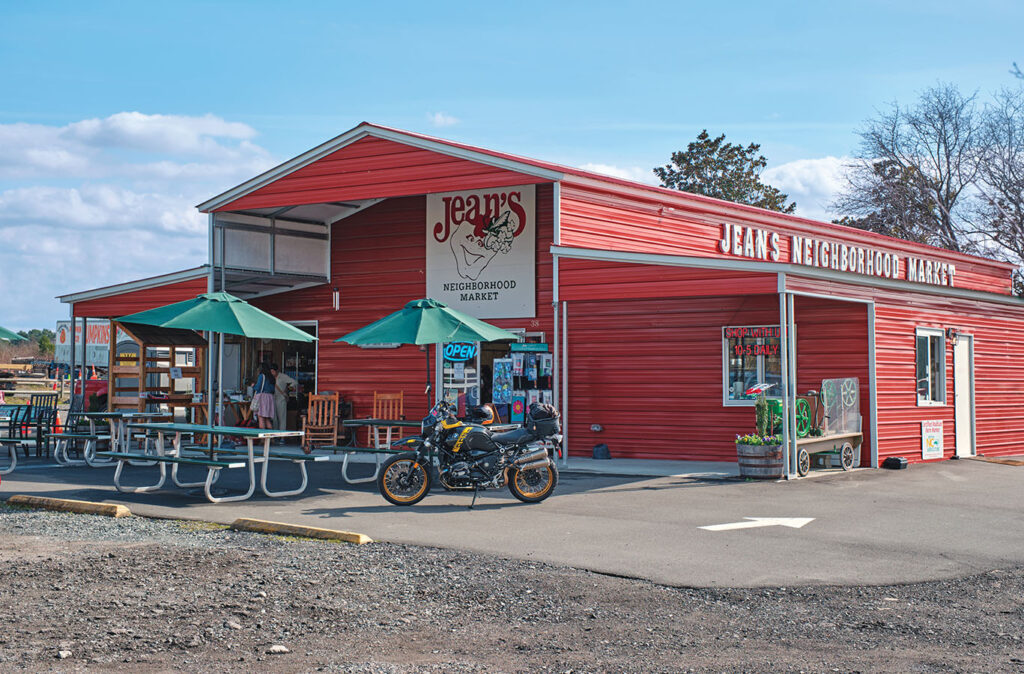
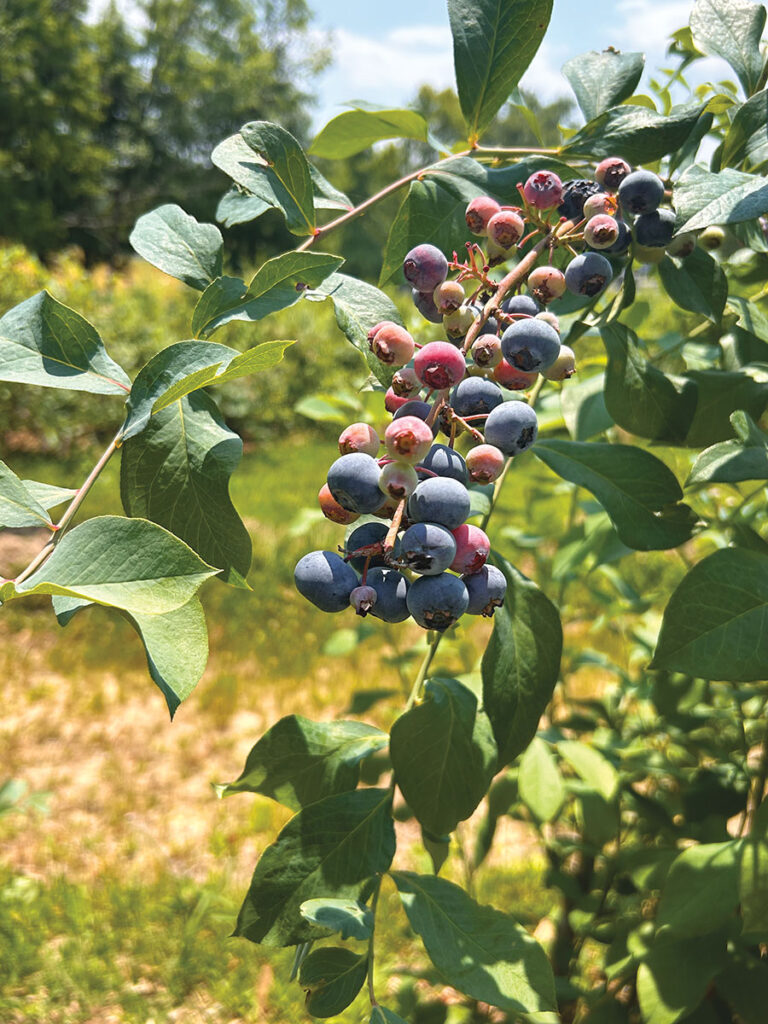
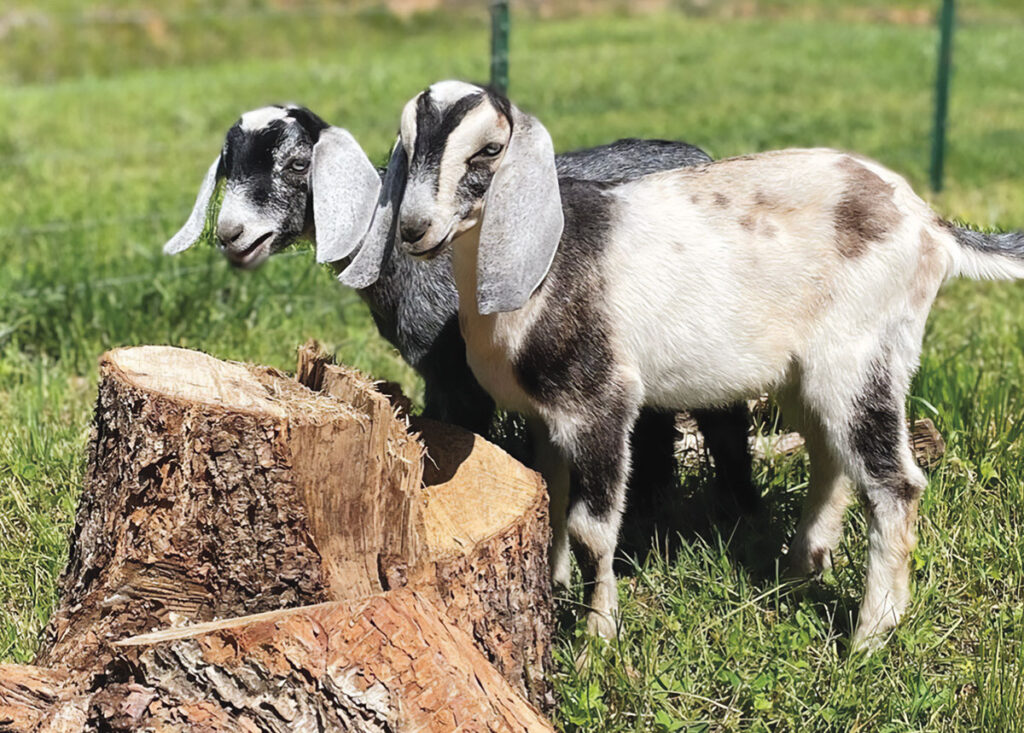
FOSTERING COMMUNITY AND RAISING AWARENESS
Stoney Acres NC, a farm rooted not just in the earth, but in the ethos of sustainability as well, embodies the spirit of community and education in Wake County. Emily Tischer, who operates Stoney Acres alongside her husband, laments that so few people realize how “agriculture is the biggest industry in North Carolina.” Because of this, Tischer and her family are on a mission to educate local communities about the industry’s importance, as well as the need for more local options.
With its three foundational pillars—education, partnership and community—Stoney Acres is more than a plot of land. It’s a classroom without walls and a hub for communal bonds, offering storytimes for children, helpful Instagram videos and more. “We even have field trips here at the farm, and a lot of what we do is teaching moms and women about agriculture,” explains Tischer. “I feel like people are dying to get back to a sustainable world.”
The farm’s approach is hands-on, especially for mothers, who are increasingly seeking to instill sustainability into their families’ roots. Stoney Acres opens its doors every Sunday afternoon, inviting people to its farm stand, where the produce is as pure as the intention behind it—free from sprays, rich in nutrition, and sourced sustainably. Stoney Acres offers an expanse of different goods, all made available through its partnerships with other local farms. From beef sourced by multi-generational local farmers, like those in Cedar Grove, to meat rubs from Clayton, lumber from Selma and goat milk soap from Ruffin, Stoney Acres aims to educate its clientele on the importance of shopping locally.
This enclave of sustainable agriculture on 4.5 acres demonstrates a profound truth: “People want to support local business, but they don’t always know where to go, and they don’t have time. So we want to bring ‘local’ to the people and make it easy,” Tischer explains. Stoney Acres does just that, making local sustainable agriculture a priority, echoing the sentiment that if such practices are not nurtured, they could wither away.
Similarly, Pack House Farm in Apex reflects the attitudes prevalent among female-led farms in North Carolina. Beth Pugh Farrell, who operates the blueberry-picking farm, champions the philosophy that people need to forge connections with the land to understand the origins of their food. In an interview with the North Carolina Department of Agriculture, Farrell expresses a profound affinity for the land, stating, “I love being connected to the land … I love that we can bring folks to our farms so they can see how their food is grown.” This sentiment is a cornerstone of her farming practice, emphasizing the importance of experiencing where and how food is cultivated, countering the disconnect many have in a world where supermarkets are the face of food sources. Pack House Farm is not only a place for harvesting blueberries, but also a place for sowing the seeds of agricultural knowledge and appreciation among visitors, reinforcing the idea that local farms are more than food production sites—they are educational grounds fostering a deeper understanding of food’s journey from soil to plate.
Also in Apex, Jean’s Neighborhood Market and Ragan & Holly’s Pumpkin Patch are quintessential examples of how local farms can foster community connections and encourage local shopping. From its origin as a seasonal pick-your-own strawberry patch in 1980, Jean’s Berry Patch has grown into a multifaceted family venture. Transitioning into Jean’s Neighborhood Market, they have expanded their offerings to include fresh produce throughout the summer months, further strengthening the bridge between the farm and the local community. This year-round venture not only provides family-friendly experiences, but also unique retail gift items, integrating local shopping with the charm of farm life.
“It is our hope and desire to continue providing a family-friendly pumpkin patch each fall, and to offer fresh produce and unique retail gift items year-round,” explains Lisa Copeland, Jean’s daughter-in-law, who helps run the market with her husband, Will. “We continue striving to serve our community well, encouraging you to shop locally.”
Jean’s Neighborhood Market is a testament to the family’s hope and desire to continue nurturing a space that’s not just about transactions, but also about traditions, experiences and education. It’s a place where families can come together to learn the importance of supporting local agriculture and discover unique produce and gifts. The mission is in the motto: “There’s something for everyone!” and the market serves as a physical reminder of the community’s roots in sustainable living and the joys of seasonal festivities.
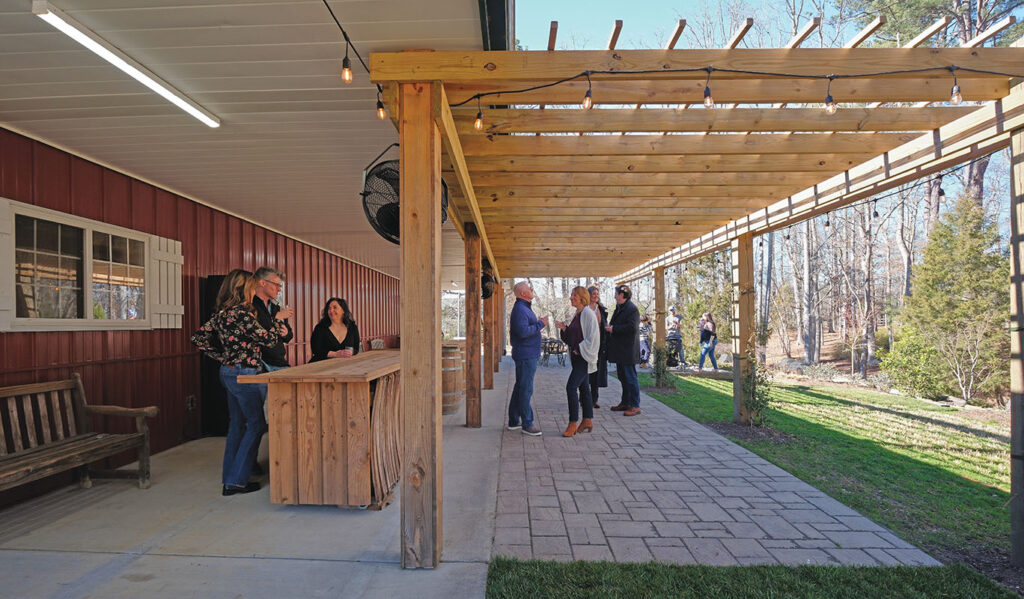
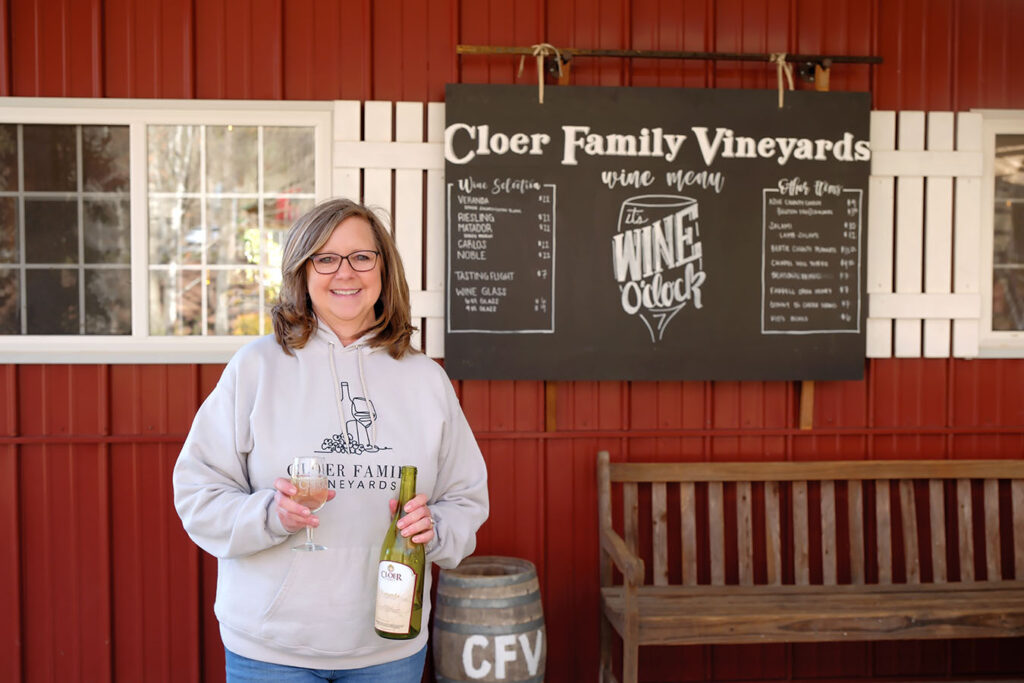
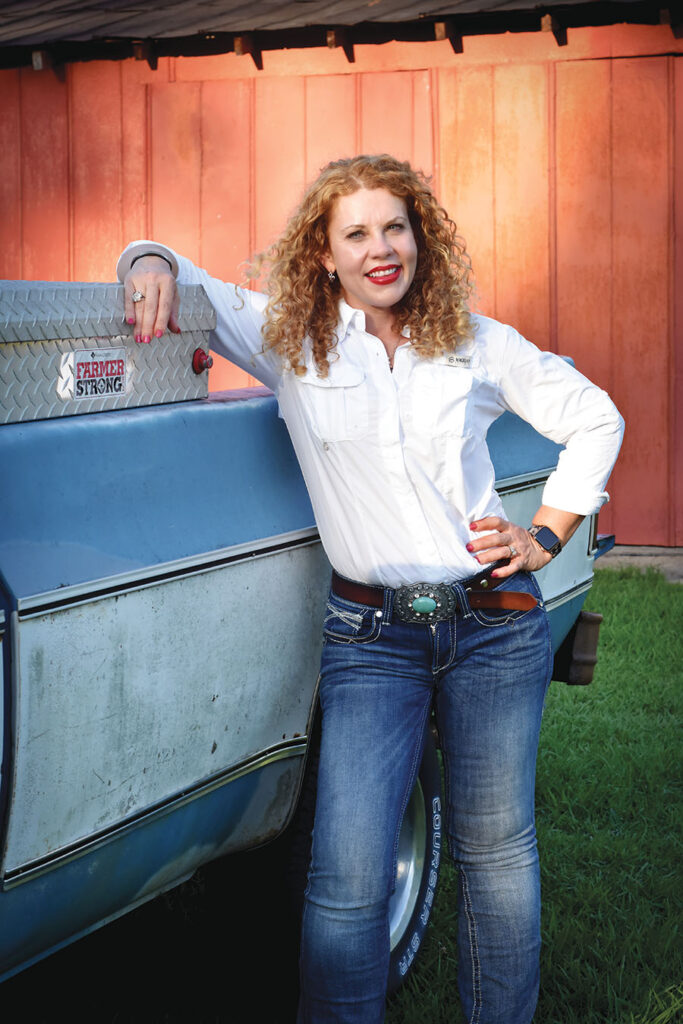
THE FUTURE OF WOMEN IN FARMING
The role of women in agriculture is not just emerging—it’s blossoming. The growing awareness among mothers, who desire to be “more organic and support local sustainability,” is pivotal, says Tischer. The shift from packaged foods to farm-fresh produce has turned the tables, with farming and female farmers gaining newfound respect.
“Women are the heartbeat of their farms,” says Pam Cloer from Cloer Family Vineyards. Women are not merely cultivating crops, but are also nurturing a deep-seated sense of relational belonging. “Women are the ones welcoming guests into their home” with the intent to foster a genuine connection between the land and those who come to experience its bounty, she says.
For this reason, Pam Cloer and others created “She Farms Apex,” celebrating the spirit of women-run farms with initiatives like annual farm tours each spring, which serve as a vital conduit for community engagement and education. These tours are not just about showcasing the produce, but also about sowing seeds of awareness about the pivotal role women play in agriculture, and encouraging people to buy local.
“It’s all about promoting what’s available in the community,” Cloer explains.
On April 20 the members of She Farms Apex will open their doors, an act that will accomplish more than just promoting their businesses—they will be inviting the public to witness the passion and hard work that goes into sustainable farming. This annual event is a clarion call, highlighting the importance of local engagement and encouraging other women to see themselves as integral to the future of farming.
“It’s all about cultivating relationships,” says Cloer. Women-run farms often find the need to enter agritourism, creating events to bolster community engagement and form connections. She adds, “More and more women are pursuing agriculture,” moving towards sustainability and holistic approaches to life and living, driven by a commitment to provide for their families and fortify the next generation with knowledge and respect for the land.
Farms such as Stoney Acres, Pack House Farm, Jean’s Neighborhood Market, Cloer Family Vineyards and more are seeds in fertile ground, producing a living lesson that women remain critical in this journey of sustainable agriculture. By supporting the community and local farms, they are the curators of a greener tomorrow. Their farms stand as a reminder that when women step up, the earth yields a bounty not just of produce, but of hope and continuity for the practice of nurturing both the land and the lineage.
